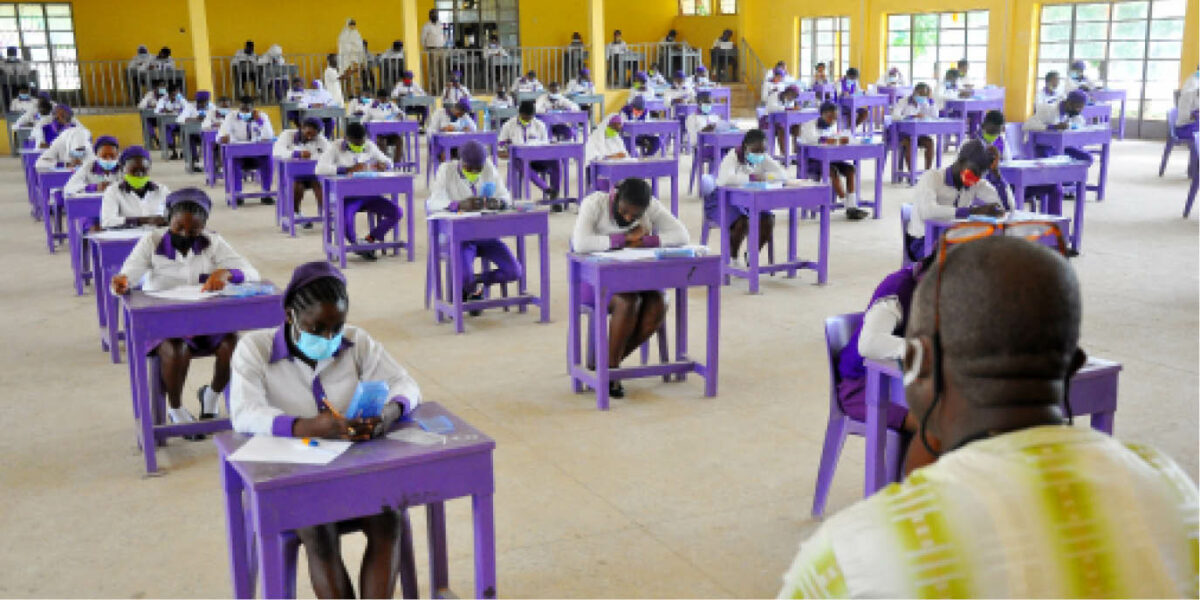It is apparent that the COVID-19 pandemic has had a sweeping effect across different sectors of the Nigerian economy.
The effect has been drastic, from the financial sector to entertainment and the education sector.
Scholarship list in circulation fake, says education ministry
Despite odds, Zamfara takes education to hard-to-reach nomadic settlements
Stakeholders in every affected sector have been forced to restructure and rethink their operations.
For the education sector, it has been months since schools across the country shut down due to the pandemic.
Unlike countries with good education structure, learning has been paused till further notice.
Federal tertiary institutions in Nigeria do not have e-learning capabilities.
It is the same with state-run schools and the average secondary and primary schools.
Recently, the government allowed students in exit classes to resume school in preparation for WASSCE.
We can only hope that these children do well after months of learning hiatus.
We should ask ourselves; how can our students compete on the world stage with this quality of education?
What is, however, inspiring is that the government has realised the deficiency and has moved towards remedy.
The Special Assistant on Education Interventions to President Muhammadu Buhari, Obafela Bank-Olemoh, recently mentioned government’s readiness to invest more in digital education.
He said this at a virtual panel session of Nigerian educators and education experts from both the public and private sectors to discuss the effect of the pandemic on the education sector.
The action is long overdue and a step in the right direction from the government which has received criticisms in its handling of the sector.
The president’s education adviser said one key area Nigerians should expect more funding in the sector, was in the area of devices for digital learning.
The stakeholders have been forced to rethink the workings of the education system.
According to the Special Assistant, the federal and state governments, in collaboration with some development partners, were working to make this a reality.
“The reality has changed how we do education whether at the state or federal level.
“Whether we like it or not, we have to provide devices for our children; this is because if something like this happens the second time, we can’t make the excuse of not planning for it,” he said.
These comments were made in a virtual masterclass which also had Babalola Oyeleye, General Manager, Transformation Office, MTN Nigeria as a panelist.
The masterclass which was on “Education without Borders and Boundaries” was part of an MTN initiative (The Revv programme) to help the country navigate the effects of the COVID-19 pandemic.
Other speakers present were Sim Shagaya, CEO, ULesson Education; Orondaam Otto, Founder/ED, Slum2School Africa; Bolajoko Falore, Education Director, Mind Builders School; Olamidun Majekodunmi, Country Manager, Nexford University.
Considering the challenges faced by the education sector, this rethinking has become necessary.
As at 2010, statistics from the Federal Ministry of Education showed that there were 782 teachers and 18,296,202 pupils (a ratio of about 1:50) in 39,221 primary schools. For public secondary schools, students’ enrolment was 5,422,611 and 122,477 teachers (a ratio of 1:45).
These figures are in stark contrast to the recommended number of one teacher to 30 students per classroom.
According to experts at the masterclass, the only way to bridge this widening gap was for stakeholders and policy makers to find ways to digitise learning.
With the new normal of maintaining social distance means that going forward, governments at all levels will be retooling the learning process to make education digital.
The coming development of digitalising education in Nigeria brings confidence in the sector.
Victor Ilo writes from Lagos

 Join Daily Trust WhatsApp Community For Quick Access To News and Happenings Around You.
Join Daily Trust WhatsApp Community For Quick Access To News and Happenings Around You.


